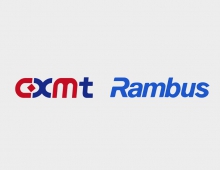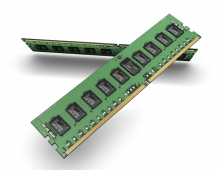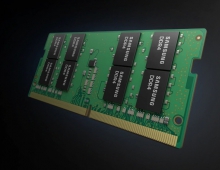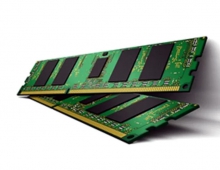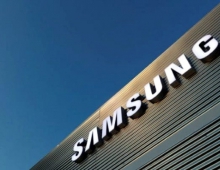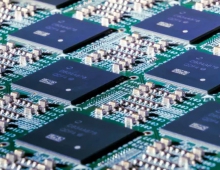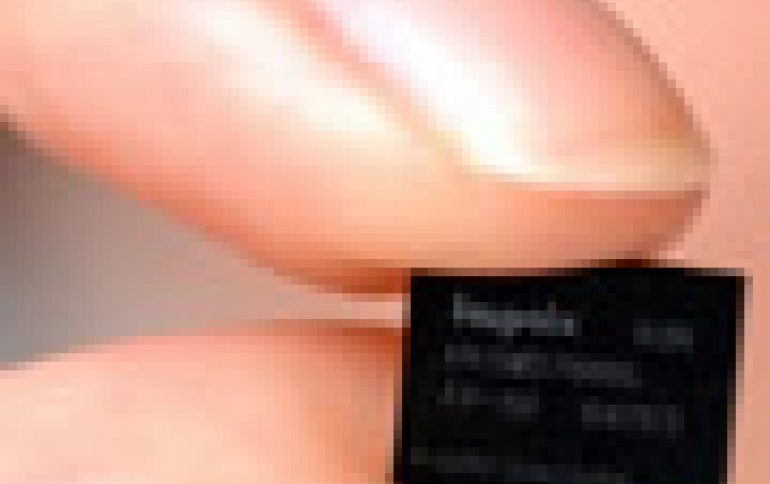
Mobile DRAM to Account for 40 Percent of DRAM Revenue in 2014
The impressive sales of smartphones and tablets have prompted DRAM manufacturers to shift their focus from PC DRAM to Mobile DRAM. The proportion of DRAM revenues accounted for by the latter has risen from 14% in 2010 to about 35% this year, and is expected to show continuous growth in the next two years.
Based on comparisons of the supply bit growth figures, research firm DRAMeXchange expects mobile DRAM to likely to not only replace PC DRAM as the mainstream DRAM product in 2014, but also show the largest shipment numbers within the industry. The three major DRAM manufacturers (Samsung, SK Hynix, New Micron Group) are each expected to direct attention from PC DRAM to Mobile DRAM despite the difficulties of adjusting the latter's design, product mix, and bringing the cost down. In the coming periods, the amount of profits generated within the Mobile DRAM industry is expected to be noticeably different among the competitors depends on their core competence on Mobile DRAM area.
TrendForce's assistant vice president, Avril Wu, notes that the demand for Mobile DRAM will remain strong as smartphone shipments continue to grow, and projects that next year's industry bit growth will surpass 40%. With the integration between data and internet furthering Android upgrades and 4G connectivity both raising the bar for hardware specs, the demands for increased Mobile DRAM content per box will likely continue. In the high-end smartphone market, 3GB is expected to gradually become the mainstream format.
Looking at the Notebook market, given the increased opportunities for applying Mobile DRAM to Ultralike devices and the replacements of traditional DDR3, an increasing number of products are beginning to show respectable power management performances. Various suppliers have begun to grow more active in their product development efforts as consumers begin showing interest in power saving features, light weight, and efficiency. The proportion of the new LPDDR3 is currently anticipated to rise rapidly in 2014, and will eventually replace LPDDR2 as the mainstream product in the market. In the same year, more and more LPDDR3 eMCP will be delivered to clients for testing. The next generation LPDDR4 may be produced in limited quantities during 2015, and officially replace LPDDR3 as the mainstream item in 2016.
Looking at the production side, given the encountered technological obstacles and the physical-limitation issues, more and more mainstream manufacturers are decelerating the pace at which they are migrating towards 25nm technology. In the event that manufacturing costs do not decrease easily, and with the numbers of supplies tightening, the Mobile DRAM price reductions are projected to ease on a quarterly basis, and in turn give the three main DRAM manufacturers greater room for profit.
Regarding sufficiency, even though Mobile DRAM technically does not belong to the "commodity" product category, the general pattern shown in the 2014 supply and demand curve indicates the possibility of a tight Mobile DRAM supply situation in 2H14. With the DRAM industry's wafer start capacity not expected to undergo any major changes and the crowd out effect expected for various product lines, Mobile DRAM production is unlikely to experience any major growth, and the average retail prices are expected to remain steady.
TrendForce predicts that the Mobile DRAM contract prices will gradually increase as its supplies begin to tighten throughout 2H14. For next year, Mobile DRAM is anticipated to show the least price drop.
TrendForce's assistant vice president, Avril Wu, notes that the demand for Mobile DRAM will remain strong as smartphone shipments continue to grow, and projects that next year's industry bit growth will surpass 40%. With the integration between data and internet furthering Android upgrades and 4G connectivity both raising the bar for hardware specs, the demands for increased Mobile DRAM content per box will likely continue. In the high-end smartphone market, 3GB is expected to gradually become the mainstream format.
Looking at the Notebook market, given the increased opportunities for applying Mobile DRAM to Ultralike devices and the replacements of traditional DDR3, an increasing number of products are beginning to show respectable power management performances. Various suppliers have begun to grow more active in their product development efforts as consumers begin showing interest in power saving features, light weight, and efficiency. The proportion of the new LPDDR3 is currently anticipated to rise rapidly in 2014, and will eventually replace LPDDR2 as the mainstream product in the market. In the same year, more and more LPDDR3 eMCP will be delivered to clients for testing. The next generation LPDDR4 may be produced in limited quantities during 2015, and officially replace LPDDR3 as the mainstream item in 2016.
Looking at the production side, given the encountered technological obstacles and the physical-limitation issues, more and more mainstream manufacturers are decelerating the pace at which they are migrating towards 25nm technology. In the event that manufacturing costs do not decrease easily, and with the numbers of supplies tightening, the Mobile DRAM price reductions are projected to ease on a quarterly basis, and in turn give the three main DRAM manufacturers greater room for profit.
Regarding sufficiency, even though Mobile DRAM technically does not belong to the "commodity" product category, the general pattern shown in the 2014 supply and demand curve indicates the possibility of a tight Mobile DRAM supply situation in 2H14. With the DRAM industry's wafer start capacity not expected to undergo any major changes and the crowd out effect expected for various product lines, Mobile DRAM production is unlikely to experience any major growth, and the average retail prices are expected to remain steady.
TrendForce predicts that the Mobile DRAM contract prices will gradually increase as its supplies begin to tighten throughout 2H14. For next year, Mobile DRAM is anticipated to show the least price drop.

